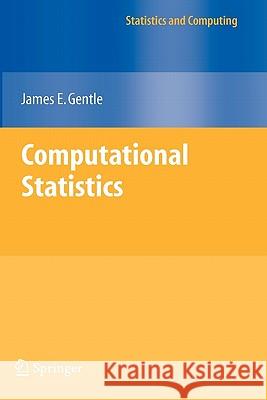Computational Statistics » książka
Computational Statistics
ISBN-13: 9780387981437 / Angielski / Twarda / 2009 / 728 str.
Computational Statistics
ISBN-13: 9780387981437 / Angielski / Twarda / 2009 / 728 str.
(netto: 507,74 VAT: 5%)
Najniższa cena z 30 dni: 501,19
ok. 16-18 dni roboczych.
Darmowa dostawa!
Computational inference has taken its place alongside asymptotic inference and exact techniques in the standard collection of statistical methods. Computational inference is based on an approach to statistical methods that uses modern computational power to simulate distributional properties of estimators and test statistics. This book describes computationally-intensive statistical methods in a unified presentation, emphasizing techniques, such as the PDF decomposition, that arise in a wide range of methods. The book assumes an intermediate background in mathematics, computing, and applied and theoretical statistics. The first part of the book, consisting of a single long chapter, reviews this background material while introducing computationally-intensive exploratory data analysis and computational inference. The six chapters in the second part of the book are on statistical computing. This part describes arithmetic in digital computers and how the nature of digital computations affects algorithms used in statistical methods. Building on the first chapters on numerical computations and algorithm design, the following chapters cover the main areas of statistical numerical analysis, that is, approximation of functions, numerical quadrature, numerical linear algebra, solution of nonlinear equations, optimization, and random number generation. The third and fourth parts of the book cover methods of computational statistics, including Monte Carlo methods, randomization and cross validation, the bootstrap, probability density estimation, and statistical learning. The book includes a large number of exercises with some solutions provided in an appendix.











